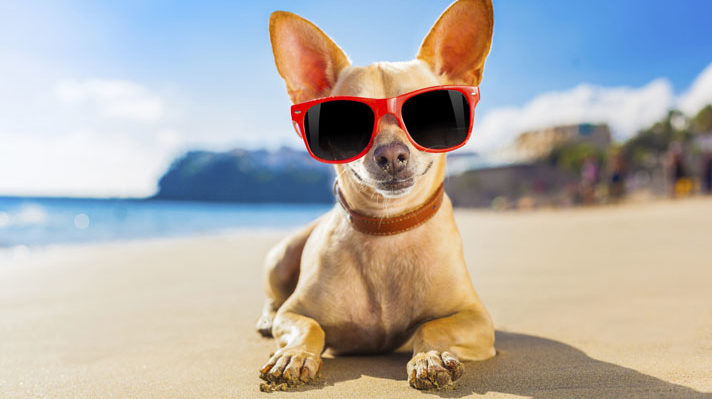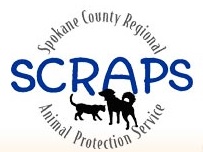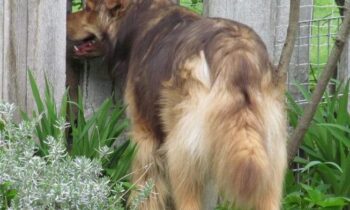
 Keep Cool.
Keep Cool.
Dogs and cats can become dehydrated quickly, so give them plenty of water if is hot outdoors. Also make sure your pet has a shady place to escape the sun if outside, and when the temperature is very high, don’t let your dog linger on hot asphalt. Being so close to the ground, your dog’s body can heat up quickly and sensitive paw pads can burn.
Spot the symptoms.
The symptoms of overheating in pets can include increased heart rate, drooling, excessive panting or difficulty breathing, mild weakness, seizures, and an elevated body temperature (over 104 degrees). Elderly, overweight, and pets with heart or lung diseases are more susceptible to heatstroke. Pets with short muzzles like pugs, bulldogs, and Persian cats become overheated because they cannot effectively pant. These pets should be kept in air conditioning to stay cool.
Visit the vet.
A visit to the veterinarian for a spring or early summer check-up is a must. Make sure your pet is up-to-date on all necessary vaccinations. Pets should also be given a blood test for heartworm diseases every year in the early spring. The deadly parasite is transmitted through the bite of an infected mosquito, and it is recommended that dogs and cats be on monthly preventive medication year-round.
Keep up-to-date.
Make sure your pet’s shots are up-to-date and their license and microchip information is up-to-date as well. In warm weather there’s more traffic in and out of your door and more chance that your pet may get out. Without updated information, SCRAPS can not help them find their way home.

Party smart.
Summertime can be perfect for backyard barbecues or parties, but remember that the food and drink you serve your guests may be poisonous to pets. Keep alcoholic beverages away from pets, and remember the the snacks you serve your friends should not be treats for your pet. Any change of diet – event for one meal – may give your dog or cat severe digestive aliments. Make sure to avoid raisins, grapes, onions, chocolate, and products with the sweeter xylitol, since they are poisonous to pets.
Fireworks are not friendly.
Leave pets at home when you head out for fireworks, and don’t ignite fireworks around pets. Aside from sounding scary, exposure to lit fireworks can potentially result in severe burns or trauma to curious pets, and unused fireworks can be hazardous. Many fireworks contain potentially toxic substance such as potassium nitrate, copper, chlorates, arsenic, and other heavy metals.
Splash safely.
Do not leave dogs unsupervised around a pool, as not all dogs are good swimmers. Introduce your pets to water gradually and make sure they wear a flotation device onboard a boat. Rinse your dog after swimming to remove chlorine or salt from fur, and try to keep your dog from drinking pool water, which contains chlorine and other chemicals that could cause stomach upset. Also, make sure that your pet does not have access to the concentrated pool chemicals, as they are highly toxic to animals if ingested.
Love the leash.
Warm weather can lead to longer walks, and sometimes the summer is the first time pet owners have the opportunity to take their dog outside for extended periods. While this is exiting for both dog and dog owner, it is important that dogs always be kept on leash, with a collar and ID tag to protect them from getting loose and injuring themselves or others.



